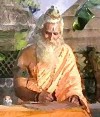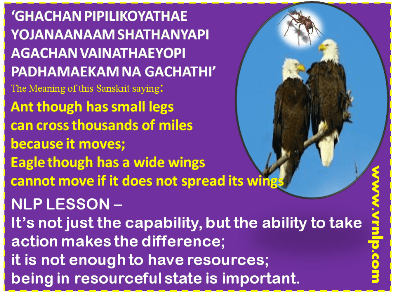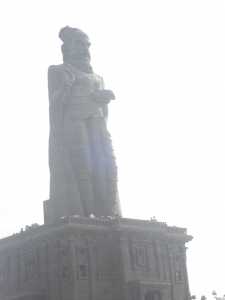WISE WORDS from Ancient Script
1.Sotsaahaanaam naasti asaadhyam naraanaam!
( there is nothing impossible for a man fired by enthusiasm)
2. Udyoginam purusasimham upaiti laksmih!
( Lakshmi, the Goddess of wealth comes to the man of untiring enterprise)
3. Kriyaasiddhih sattve bhavati mahataam na upakarane !
( The success of great men is achieved by strength of mind, not by the tools they use)
4. Vikaarahetau sati vikriyante esaam na cetaamsi ta eva dhiraah!
( One whose mind is firm even amidst unsettling factors is valiant
5. kaaryaanaam karmanaa paaram yo gacchati sa buddhimaan!
(The man who fulfills his duties by proper action is wise)



